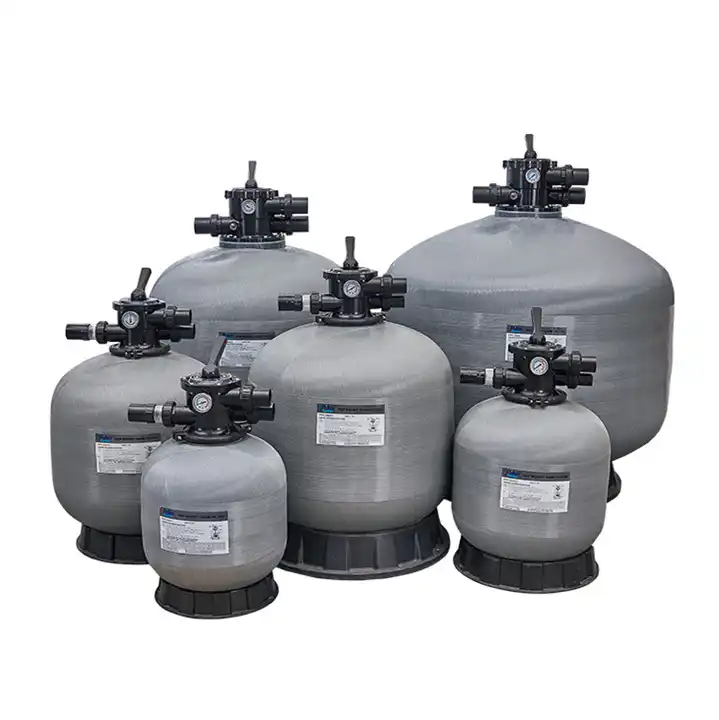The clarity and cleanliness of swimming pool water are paramount for a safe and enjoyable swimming experience. Among various pool cleaning equipment, sand filters stand out for their efficiency in filtration and ease of maintenance. This article delves into the working principles, types, maintenance, and advantages of swimming pool sand filters.
Overview of Swimming Pool Sand Filters
Swimming pool sand filters use sand as a filtration medium to remove suspended particles and impurities from pool water. They are a central component of the pool filtration system, ensuring the water remains clean and clear.
Working Principle
The operation of a swimming pool sand filter is based on a simple physical filtration process. As pool water is pumped into the filter, it passes through a layer of sand grains. These grains effectively capture and remove impurities such as dust, sludge, and microorganisms. Over time, the filter layer accumulates more impurities, enhancing its filtration efficiency.
Types and Selection of Sand Filters
According to the EUSA technical paper, sand filters are primarily categorized into low, medium, and high-rate types. Each type has specific applications and filtration efficiencies. Choosing the right sand filter involves considering factors like pool size, usage frequency, and maintenance capabilities.
Maintenance and Cleaning
Maintaining a sand filter is relatively straightforward, primarily involving regular backwashing and media replacement. Backwashing is the process of reversing the water flow to flush out accumulated impurities from the filter media. As per the manuals from Floyd Contracting and AquaPro, the backwashing process should be conducted when there is a noticeable decrease in water flow or an increase in the pressure gauge reading.
Sand Filter Maintenance Schedule
| Maintenance Task | Frequency | Notes |
|---|---|---|
| Backwashing | As needed | Typically when the pressure gauge reads 10 psi above normal |
| Media Replacement | Every 5-7 years | Depending on usage and water quality |
Advantages and Limitations
Sand filters offer several advantages, including high filtration capacity, ease of maintenance, and cost-effectiveness. However, they also have limitations, such as the need for regular backwashing and potential for channeling if not properly maintained.
Case Studies
Real-world applications of sand filters in swimming pools demonstrate their effectiveness in maintaining water clarity. These case studies highlight the importance of regular maintenance and the right selection of filter type based on pool size and usage.
Conclusion
Swimming pool sand filters play a crucial role in maintaining water clarity and hygiene. Regular maintenance, including backwashing and media replacement, is essential for their effective operation. Future advancements in pool filtration technology may offer even more efficient and user-friendly solutions.
